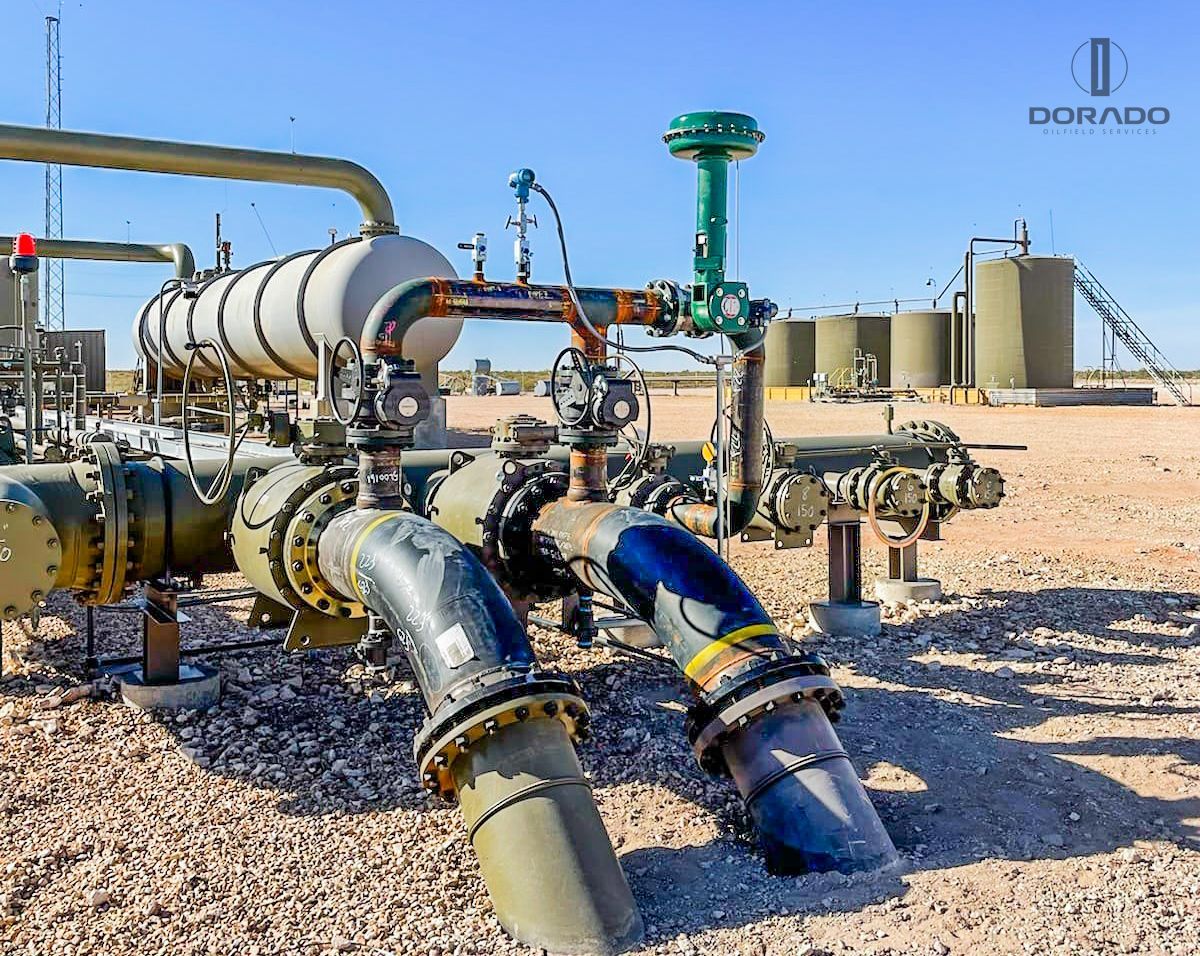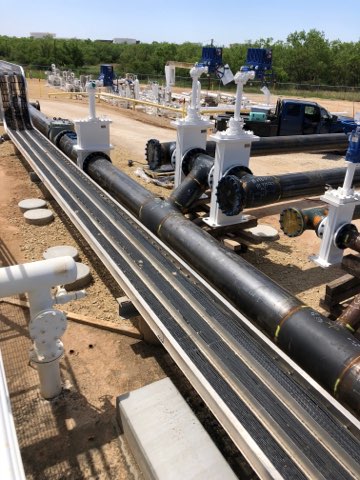Pipeline Construction Services FAQs: What Clients Need to Know
The Crucial Guide to Recognizing Pipeline Construction Services and Their Importance
Pipeline Construction services are essential to the transport of essential resources such as gas, oil, and water. These solutions involve meticulous planning and execution, adhering to stringent safety and ecological requirements. As the sector adapts to contemporary difficulties, comprehending its ramifications and components ends up being increasingly important. What elements add to the expanding significance of these solutions in today's economic situation? The complying with areas will check out these vital facets.
Review of Pipeline Construction Services
Pipeline Construction services include a series of activities important for the setup and maintenance of pipes made use of to transport various materials, consisting of oil, gas, and water. These services are essential for assuring the reliable and safe motion of sources from one area to an additional. The process commonly starts with complete planning and layout, which takes into account regulative requirements, ecological factors to consider, and logistical difficulties.
Excavation and grading of the land are performed to prepare the site for Pipeline installation as soon as preparation is full. This is followed by the real laying of the pipelines, which entails welding or signing up with sections together to develop a continual flow path. After installment, extensive screening is executed to assure integrity and safety and security. Upkeep solutions are additionally given to address any kind of problems that might emerge gradually. In general, Pipeline Construction solutions play a crucial role in supporting facilities for energy and water circulation.
Secret Components of Pipeline Construction
An effective Pipeline Construction task relies upon several key components that assure the efficient and risk-free installation of the Pipeline system. Detailed website analyses are essential, as they identify the geographical and ecological aspects that might impact Construction. Next, the choice of suitable products, such as pipelines and installations, is important for securing longevity and compatibility with the carried compounds.
Advanced Construction methods, consisting of trenchless modern technology and directional drilling, improve performance and lessen ecological effect. Reliable job monitoring is one more vital part, coordinating labor, tools, and timelines to meet job objectives.
Additionally, interaction amongst stakeholders, including designers, contractors, and local authorities, guarantees positioning on task requirements and needs. Thorough quality control measures throughout the Construction process make certain compliance with market criteria and take full advantage of the Pipeline's functional life expectancy. Collectively, these components create the backbone of a successful Pipeline Construction task.
Safety Criteria and Rules in Pipeline Construction

Governing bodies, such as the Occupational Safety And Security and Wellness Management (OSHA) and the Pipeline and Hazardous Materials Safety Management (PHMSA), stated details needs that govern Construction methods. These include protocols for equipment usage, employee training, and emergency situation response treatments. By executing these criteria, Construction companies not just shield their workers yet also safe public trust. Inevitably, strenuous security measures add to the long-term success of Pipeline projects, guaranteeing they satisfy both functional and ecological assumptions.
Ecological Factors To Consider in Pipeline Projects

Environmental considerations are essential to the planning and execution of Pipeline tasks. These jobs should assess prospective influence on communities, water sources, and regional wild animals. Conducting thorough environmental impact assessments (EIAs) is vital, permitting stakeholders to identify and mitigate risks prior to Construction starts.
Shielding sensitive areas, such as marshes and environments, frequently calls for applying details layout functions or different routing to lessen interruption. Furthermore, Pipeline operators are charged with developing methods for stopping spills and leakages, which can have devastating impacts on the environment.
Engagement with local communities is essential, as public problems can lead to project alterations that enhance environmental management. Conformity with policies set by environmental agencies assures that jobs satisfy sustainability requirements, cultivating a balance between framework needs and environmental preservation. Eventually, dealing with environmental factors to consider not only safeguards nature however also promotes neighborhood count on and project stability.
The Function of Modern Technology in Pipeline Construction
Modern technology plays a vital role in modern Pipeline Construction, boosting effectiveness and precision. Advanced checking strategies enable for exact planning and execution, decreasing ecological effect and job hold-ups. In addition, the combination of automation and robotics simplifies operations, decreasing labor costs and boosting security on Construction sites.
Advanced Evaluating Strategies
Advanced checking techniques play a crucial function in the effective implementation of Pipeline Construction tasks. These approaches utilize cutting-edge innovation to ensure exact mapping and evaluation of the surface where pipelines will be installed. Techniques such as see here Geographic Information Equipment (GIS), LiDAR (Light Detection and Ranging), and 3D modeling allow designers to evaluate the landscape and picture, identifying potential challenges and environmental issues. By using these innovative devices, groups can boost accuracy in placing and placement, substantially decreasing the threat of mistakes during Construction. Additionally, real-time data collection permits instant modifications and educated decision-making throughout the task lifecycle. Inevitably, these evaluating advancements add to improved performance, safety, and sustainability in Pipeline Construction efforts.
Automation and Robotics

Economic Impact of Pipeline Framework
Pipeline infrastructure plays an important role in facilitating and forming local economic situations trade. By giving a dependable methods of moving oil, gas, and various other products, pipelines lower transportation expenses and boost supply chain efficiency. This facilities draws in investment, boosts task production, and fosters economic growth in bordering locations.
In addition, the Construction and maintenance of pipes add considerably to neighborhood economic situations, developing many employment possibility in various industries, from engineering to labor. The increase of jobs typically leads to enhanced investing in neighborhood businesses, further strengthening economic activity.
Additionally, pipes boost energy safety by ensuring a steady supply of sources, which is important for household requirements and industrial procedures. As areas come to be interconnected with Pipeline networks, they get to wider markets, increasing competition and economic durability. The financial effect of Pipeline infrastructure is diverse, affecting both prompt local economies and wider local growth.
Future Fads in Pipeline Construction Providers
The future of Pipeline Construction services is evolving in response to technical developments, governing adjustments, and growing ecological considerations. Innovations such as drones and robotics are improving examination and upkeep procedures, improving safety and efficiency. Automation is poised to lower labor prices and boost accuracy in Construction procedures. Additionally, the raising emphasis on sustainability is triggering companies to adopt environmentally friendly materials and techniques, aligning with worldwide efforts to lower carbon footprints.
Regulatory structures are additionally adapting to resolve ecological influences, pushing for greater transparency and responsibility in Pipeline jobs. In addition, the integration of smart technologies, consisting browse around these guys of real-time surveillance systems, is expected to improve the integrity and performance of Pipeline networks. As power demands change toward renewable resources, Pipeline Construction solutions will likely see a surge in tasks related to biofuels and hydrogen transport. In general, these patterns suggest a transformative duration for the Pipeline Construction sector, concentrated on development and sustainability.
Often Asked Inquiries
What Kinds of Pipelines Are Commonly Constructed?
Various sorts of pipelines are typically built, consisting of oil, gas, sewer, and water pipes - Pipeline Construction Services. Each offers distinctive objectives, facilitating the transport of vital sources throughout areas while sticking to safety and security and ecological laws
For how long Does a Normal Pipeline Project Take?
The period of a typical Pipeline project varies significantly, commonly varying from a number of months to a few years. Elements influencing this timeline consist of task intricacy, regulative approvals, and environmental factors to consider that have to be resolved.
Who Regulates Pipeline Construction Firms?
Pipeline Construction firms are controlled by various federal, state, and neighborhood firms, consisting of the Pipeline and Hazardous Products Safety Management (PHMSA) and state public energy compensations, guaranteeing compliance with safety and ecological requirements throughout the Construction process.
What Prevail Products Used in Pipeline Construction?
Usual products utilized in Pipeline Construction consist of steel, pvc, and polyethylene. Each product uses distinct benefits such as resistance, toughness, useful site and flexibility to corrosion, making them appropriate for numerous applications in moving fluids and gases.

Exactly How Are Pipeline Construction Expenses Estimated?
Pipeline Construction costs are estimated by evaluating factors such as material costs, labor prices, job intricacy, environmental factors to consider, and regulatory needs (Pipeline Construction Services). Exact expense evaluation guarantees effective budgeting and task preparation throughout the Construction procedure
Pipeline Construction services encompass an array of activities necessary for the setup and maintenance of pipes utilized to carry various materials, consisting of gas, oil, and water. A successful Pipeline Construction task depends on several vital elements that guarantee the reliable and risk-free setup of the Pipeline system. Advanced surveying strategies play a vital role in the effective execution of Pipeline Construction jobs. Different kinds of pipelines are generally created, consisting of oil, gas, water, and sewage pipes. Pipeline Construction prices are estimated by analyzing factors such as product expenditures, labor prices, job complexity, ecological factors to consider, and regulatory requirements.